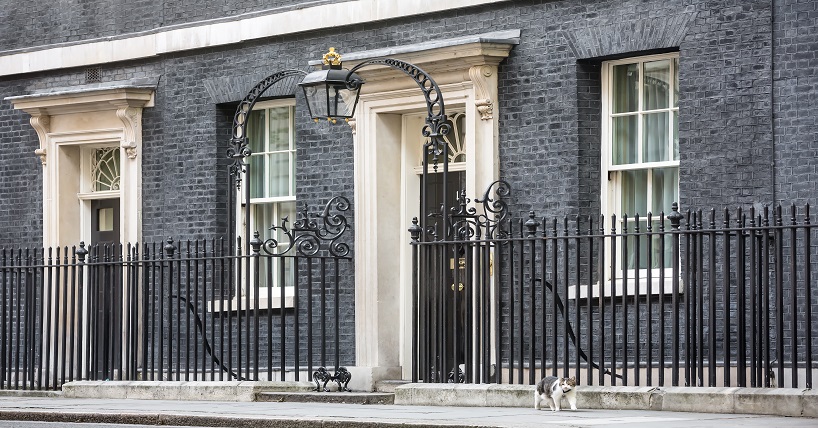affect of PIP cuts
“Red Wall” constituencies have most to lose from PIP benefit changes
Published on: 2 May 2025
Proposed changes to Personal Independence Payments (PIP) could have a “devastating” effect on some of the most deprived communities in northern England, according to a new report.
Cuts to PIP payments, which are designed to support people with significant disabilities to live independent lives, will make it harder for those in disadvantaged northern communities to pull themselves out of poverty according to academics.
Health Equity North (HEN) released a seat-by-seat breakdown of the consequences of the Government’s proposal to alter PIP benefits, estimating that the worst-hit Parliamentary constituencies stand to lose more than £20 million a year from their local economies. The North East and North West are set to be affected the most, with all of the top ten most-impacted constituencies located in these regions.
With parliament due to vote on the proposal in the next few weeks, researchers have urged MPs to consider the impact on their constituencies before making their decision.
When the changes were announced by Chancellor Rachel Reeves in March, the Department of Work and Pensions (DWP) estimated that 400,000 fewer people would be eligible for PIP - and that 250,000 would be pushed into poverty as a result, including 50,000 children. This new analysis shows the cumulative economic impact of this for each constituency in England.
The report, by Health Equity North, is led by academics from Newcastle University, the University of Sheffield and the University of Manchester. It estimates how much money each English constituency stands to lose from their local economies in 2029/30 as a result of the changes, compared to the current system. With less money coming in to support their needs, those affected by the changes will have less to spend on food, housing, and services - leading to a knock-on effect on the community and its local businesses.
Professor Clare Bambra, Academic Co-Director of Health Equity North and Professor of Public Health at Newcastle University, said: “When these plans were announced, the Government said that cutting PIP eligibility would reduce costs and get more people into work. While this may look to be an attractive proposition for MPs on paper, our research shows the wider economic impacts on their constituencies and local economic growth.
"Those areas that will lose most from this proposal were already decimated by austerity, COVID and the cost of living crisis. They have worse health than other regions and their local services and economies are already struggling. Losses of this magnitude risk worsening the situation for everyone living in these deprived constituencies.
“Parliament cannot risk rushing proposals like these through without fully considering how they affect local areas that are already struggling. We hope that research such as ours gives MPs more context, so they can make the most informed, forward-thinking and economical decision.”
The report, which includes a full breakdown by constituencies across England, is available on this link.

The report reveals that:
- The average loss per working-age adult in England is £176 per year
- The changes are set to have the greatest effect on regions such as the North East (£269 per working-age person on average), the North West (£231), Yorkshire and The Humber (£206), the West Midlands (£191) and the East Midlands (£185)
- The worst-hit constituencies are in Easington (£409 per working-age person), Liverpool Walton (£403) and Knowsley (£389)
- These three constituencies alone could lose an estimated total of £23.8m, £26.2m and £23.4m respectively per year by 2029/30
- The smallest difference is in Bristol Central (£62 per working-age person), Oxford and West Abingdon (£66) and Wimbledon (£67)
- The impact on these constituencies is £5m, 4.7m and £4.9m respectively per year by 2029/30
- The most-deprived constituencies will lose nearly three times the amount of the least-deprived (£265 per working-age person on average compared to £96)
- The ten worst-hit constituencies are all Labour-held, and in “Red Wall” areas
- The impacts will also disproportionately affect the constituencies which already have the lowest life expectancies in England.
PIP is a non-means tested benefit which is designed to help people living with a long-term disability or chronic health issue. It is made up of two separate elements: The Daily Living Award and Mobility Award.
There are currently 3,655,815 claimants in England and Wales, according to the most recent data. Applicants go through an eligibility-assessment where they are scored based on the level of support they require across ten aspects of day-to-day activity.
The Government’s Pathways to Work Green Paper plans to exclude younger age groups, and to restrict eligibility to the Daily Living component by requiring that applicants score at least four points in one question to be eligible.
The HEN study was calculated using figures from Freedom of Information requests, as well as publicly available data from the DWP and the Office of National Statistics. It highlights the need for MPs to think carefully about the effect of the changes on their constituencies and on other vulnerable communities before casting their vote in parliament.
Dr Luke Munford, Academic Co-Director of Health Equity North and Senior Lecturer in Health Economics, The University of Manchester, said: “The DWP’s own figures estimate that the proposed changes to PIP benefits could push an extra 250,000 people into poverty, including 50,000 more children. This is cause for concern on its own.
“Worse still, this research shows that the impact will be felt unequally, and that the larger burden will fall on the most deprived communities in the country. This will put further strain on people who are already finding it very hard to pay for basic living costs, and undoubtedly impact on their quality of life, mental health and life expectancy.
“While we acknowledge the Government’s desire to reduce costs and encourage people into work, we urge MPs to consider the potential impact of this proposal to thousands of people in their constituencies before casting their vote.”
Dr Natalie Bennett, Postdoctoral Research Associate at the University of Sheffield, said: “The Government has already indicated the broad impact it expects these changes to have on the country, if approved.
“By breaking the figures down by region, the report makes it clear that northern communities will feel the effects of these changes more keenly than other areas of the country. This will not only have an effect on the amount those affected can spend in the local economy, but also increase the strain on their mental and physical health.
“We hope that this research gives MPs food for thought before they make their decision on the proposed changes, and that they consider whether this is in the best interests of their constituents and the country as a whole.”
The full study: ‘Local Economic Impact of the Proposed Changes to Personal Independence Payments (PIP) by Parliamentary Constituency’



